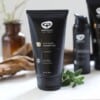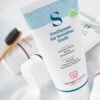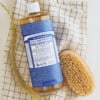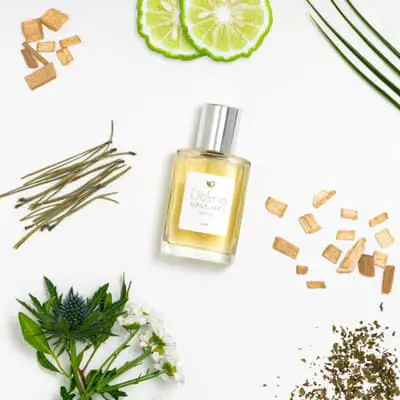- This post may contain affiliate links which - at no cost to you - may generate a small fee for us. It helps us research and review products more effectively
Dr. Bronner’s is 100% cruelty-free and Leaping Bunny approved.
The brand doesn’t test any finished products or ingredients on animals itself. Work with suppliers who do so or sell in countries where animal testing could be required by law.
Does Dr. Bronner’s Sell products in China?
Dr. Bronner’s products are available to the Chinese market, but through an ecommerce store.
Selling cosmetics online and then shipping directly to customers in China, means Dr. Bronner’s is not required to test on animals. The same goes for cosmetics sold on online Chinese-specific shopping websitex like Tmall.
Thanks to the changing laws around animal testing in China, mandatory animal testing for the majority of cosmetics is no longer enforced. Although on special-use cosmetics is still very much a problem.
Is Dr. Bronner’s Vegan?
Dr. Bronner’s is not a completely vegan brand, so please make sure you read the labels of each product beforehand.
The lip and body balms all contain sustainable beeswax, whilst the facial toners contain honey – although they’re only sold in Japan and Korea.
We haven’t identified any other products that contain animal byproducts, but Dr. Bronner’s are pretty transparent about products and ingredients.
Is Dr. Bronner’s Ethical?
Yes Dr. Bronner’s is an ethical brand when compared to almost anyone’s standards.
It is cruelty-free, of course. And has a host of ethical certifications to go with it, including:
Which means the company balances profit, environmental and social practices.
- Donate 33% of all profits to social and ecological projects
Part of the reason why Dr. Bronner’s became B Corp certified. It’s not all about the money.
- Recycled and recyclable packaging
As 100% of Dr. Bronner’s packaging is recyclable and made-from completely Post Consumer Recycled (PCR) plastic, waste is kept to a minimum.
- Building fair relationships with suppliers and employees
In building fair trade relationships with organic farmers in areas where sustainable development is essential, Dr. Bronner’s helps us all play a part in improving the lives of communities who need it.
You can find out more about its projects and partnerships here.
As Featured in…
Dr. Bronner’s Product Range
- Toothpaste
- Soap – soap that is in fact suitable for skin, laundry, mopping and
- Lip balms and lotions
- Haircare
- Cleaners
- Hand sanitiser
Dr. Bronner’s Hero Product
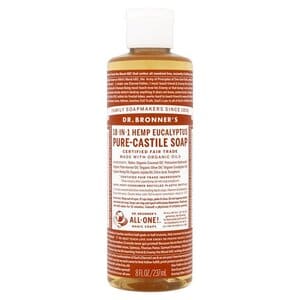
Dr. Bronner’s Pure Castille Liquid Soap is really the most popular product – and arguably the most famous – in the Dr. Bronner’s range.
It’s multi-purpose use is really what makes it standout for me. To my knowledge there’s no other soap I would feel comfortable using on my face, floors and feet
The 18-to-1 tagline is testament to how many suggested uses it has. And Dr. B’s has really nailed the cleaning scents – tea tree, lavender, citrus and peppermint are the standout for me.
But What Exactly is Castile Soap?
Castile soap is a versatile, vegetable-based soap free-from animal byproducts and harsh chemicals.
In the days of yore, castile soap was made with olive oil and gets it’s name from the Castile region of Spain. Such are olive oil’s moisturising and vitamin-packed (A, D, E and K) nature, it makes a wonderful carrier for soaps and cosmetic products. It is even anti-bacterial.
Nowadays Dr. Bronner’s Castile soap is made with a nourishing blend of organic hemp, olive, sustainable palm, jojoba and coconut oil. An equally enriching blend free-from synthetic preservatives, detergents and foaming agents.
Whilst blends typically don’t indicate a high-quality product. This blend of oils is carefully crafted to play to their strengths. For example; coconut oil is great for lathering but can be very drying in high quantities. Combining it with olive oil removes the drying element, leaving your skin soft and moisturised.
Yes Dr. Bronner’s is completely vegetarian.
Whilst a few lotions and balms contain beeswax or honey, there are no ingredients unsuitable for vegetarians.
No Dr. Bronner’s isn’t palm-oil free.
Whilst it ensures fair trade practices are put in place and that the palm-oil used in its soaps is sustainable, it isn’t palm-oil free.
Yes Dr. Bronner’s is paraben and sulfate-free. And synthetic fragrance-free, dye-free, non-GMO and certified organic.
No Dr. Bronner’s toothpaste is entirely fluoride-free, SLS-free, organic, natural, paraben and sulfate-free and vegan.
Dr. Bronner’s utilise lye (an alkali) as part of the soap-making process. However once this process is complete, no alkali is left in the soap.
Soap is made by saponifying a fat or oil with an alkali. The fat – in this case a blend of olive, coconut, jojoba, and hemp – is saponified with an alkali (sodium hydroxide aka lye) to form a soap.
Yes Dr. Bronner’s soap is excellent. The combination of quality, harsh-chemical free ingredients makes for an excellent, nourishing lather that leaves your skin feeling incredibly soft (and your floors spotless).
As the formula is so much more concentrated than others on the market, you can dilute the soap making it excellent value. And it is such an incredibly soft, versatile product that it’s perfect for irritant-free, pet-friendly cleaning.
Dr. Bronner’s soaps are neutral to acidic in their pH, but are very, very mild. Hence their effectiveness at cleaning both floors and skin.
Objects with very differing needs.
Absolutely. Face. Floor. Privates. Anything within reach.
The chemical-free, lathering formula is incredibly gentle and won’t unbalance your pH levels. And as the best private-area cleaning products are natural, dye-free and fragrance-free, Dr. Bronner’s soap ticks the boxes.
No castile soap is not 100% anti-bacterial.
Castile soaps work by attaching to dirt and germs and rinsing them away, leaving behind a clean surface. Surfactants, such as Castile Soap, remove germs and bacteria, as well as dirt and grease. But they don’t kill the bacteria. They clean the surfaces and remove them.
Antibacterial agents you may find in hand sanitisers kill bacteria, but don’t clean them. In fact they kill 99% of them, not even all of them. So using both is a safer choice.

